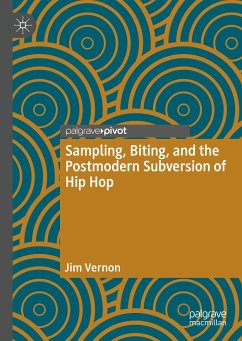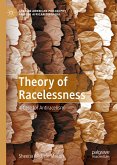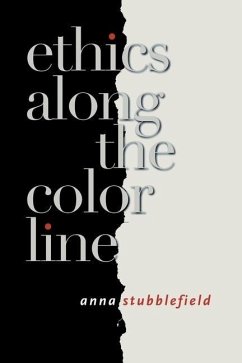Drawing on the culture's history before and after the birth of rap music, this book argues that the values attributed to Hip Hop by 'postmodern' scholars stand in stark contrast with those that not only implicitly guided its aesthetic elements, but are explicitly voiced by Hip Hop's pioneers and rap music's most consequential artists. It argues that the structural evacuation of the voices of its founders and organic intellectuals in the postmodern theorization of Hip Hop has foreclosed the culture's ethical values and political goals from scholarly view, undermining its unity and progress. Through a historically informed critique of the hegemonic theoretical framework in Hip Hop Studies, and a re-centering of the culture's fundamental proscription against 'biting,' this book articulates and defends the aesthetic and ethical values of Hip Hop against their concealment and subversion by an academic discourse that merely 'samples' the culture for its own reactionary ends.
Jim Vernon is Professor of Philosophy at York University in Toronto, Canada. He is the author of Hegel's Philosophy of Language (2007), Hip Hop, Hegel, and the Art of Emancipation: Let's Get Free (2018), and numerous articles on Continental philosophy and emancipatory political theory.
Dieser Download kann aus rechtlichen Gründen nur mit Rechnungsadresse in A, B, BG, CY, CZ, D, DK, EW, E, FIN, F, GR, HR, H, IRL, I, LT, L, LR, M, NL, PL, P, R, S, SLO, SK ausgeliefert werden.
Es gelten unsere Allgemeinen Geschäftsbedingungen: www.buecher.de/agb
Impressum
www.buecher.de ist ein Internetauftritt der buecher.de internetstores GmbH
Geschäftsführung: Monica Sawhney | Roland Kölbl | Günter Hilger
Sitz der Gesellschaft: Batheyer Straße 115 - 117, 58099 Hagen
Postanschrift: Bürgermeister-Wegele-Str. 12, 86167 Augsburg
Amtsgericht Hagen HRB 13257
Steuernummer: 321/5800/1497
USt-IdNr: DE450055826
Bitte wählen Sie Ihr Anliegen aus.
Rechnungen
Retourenschein anfordern
Bestellstatus
Storno









